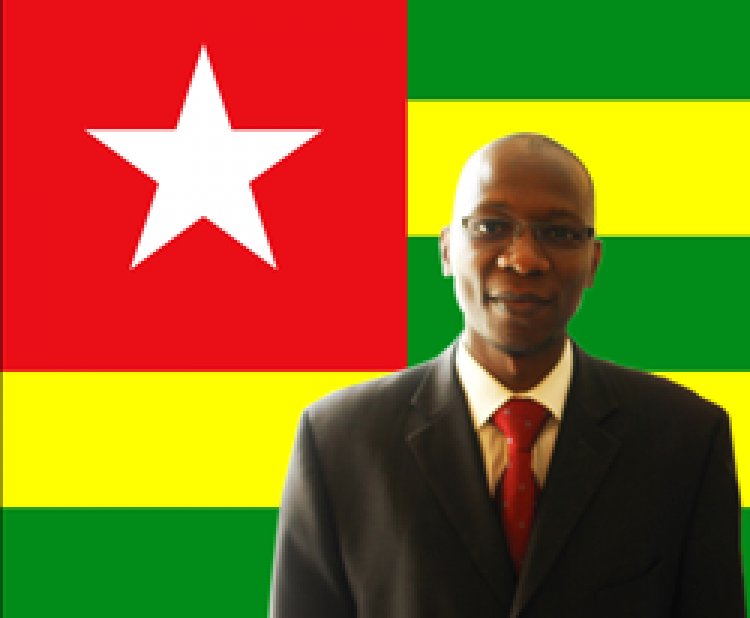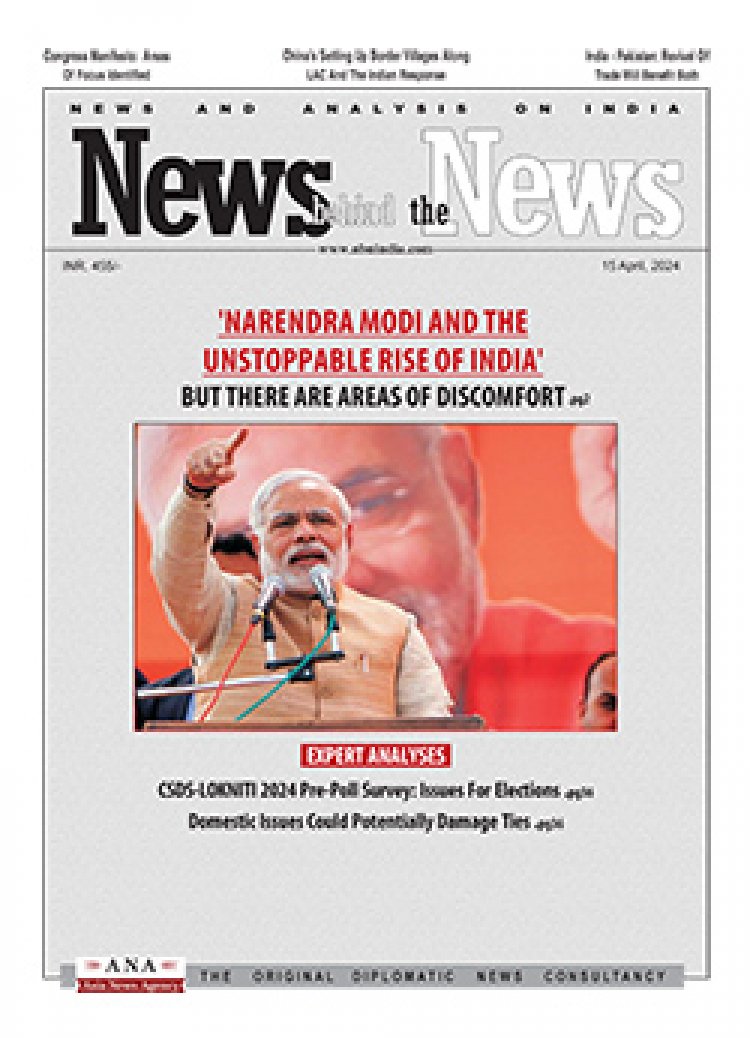Mr. Akakpo Koffi, Chargé d'Affaires of the embassy of the Republic of Togo

Asia News Agency interviewed H.E. Mr. Akakpo Koffi, Chargé d'Affaires of the embassy of the Republic of Togo to discuss areas of bilateral interests between the two countries. Excerpts of the Face to Face interview are given below.
ANA: India and Togo have had cordial bilateral relations but India still does not have a resident Indian mission in Togo. There is an Indian Honorary Consul in Togo. Togo has opened a resident Mission in New Delhi in October, 2010 headed by a resident Charge d’Affairs. Excellency, how would you assess the status of bilateral relations between the two countries?
H.E.: Bilateral cooperation between India and Togo is looking good. Besides many advantages that my country draws from the ITEC programs of the Indian government, several other initiatives have been taken - the agreement signed on 26th March, 2008 between Togo and the Committee for the Development of Industry and Construction of the Republic of India (CIDC) to strengthen the capacity building of human resources; the choice of my country to setup the human settlement center and the establishment of a training institute of the English language under the implementation of the decision of India-Africa Forum of Addis Ababa.
ANA: According to our research, economic and trade aspects have dominated bilateral relations. Is this a correct interpretation and in your opinion, are their other potential areas that could uplift cooperation between the two countries?
H.E.: Bilateral trade between India and Africa in 2011 reached 60 billion U.S dollars; an increase of 22% over the previous year. According to our expectation, this figure would be 90 billion U.S. in 2015 contrary to the objective set at the first meeting of trade ministers of India-Africa in Addis Ababa in 2011. This is to say that trade between India and Africa follows an exponential growth.
Our wish is that under the good relations of friendship and cooperation existing between India and Togo, Indian companies relocate in Togo and enjoy huge benefits offered by the Free Zone of our country.
ANA : Coming to the economic aspect, India’s has provided assistance in the form of tractors (60), water pumps, sewing machines, ambulance, transport vehicles, corn-grinding machines, etc. and in the development of human resource. These are but small initiatives. Excellency what in your opinion are the other areas where India can provide similar support and have such requests been made to the Government of India?
H.E.: The efforts deployed by the Indian government to help our country are enormous. The donation of farming equipment and the assistance of Indian experts in Togo constitute areas of cooperation and are well known. However, consultative meetings need to be organized between technical ministries of our country and government of India to identify the various other programs; these should be financed by the Indian government.
ANA: Another form of assistance has been extending Line of Credits (LOCs) to Togo – the first one for US$ 33.04 million and another of US$ 13 million. These have been for strengthening the health and power infrastructure. Recently Togo’s Minister of Economy and Finance, Mr. AdjiOtethAyassar, signed an agreement with EXIM Bank of India on 12.1.2012 for a LOC of US$ 13.095 million for financing farming and cultivation of rice, maize and sorghum in Togo. Excellency, are these your priority areas and is your country satisfied with the implementation of these projects?
H.E.: Recently Mr. AdjiOthèthAyassor signed with Exim Bank of the government of India two financing agreements of 13.095 million $ US and 15 million $ U.S to finance the cultivation of rice, maize and sorghum and to strengthen the Rural Electrification in Togo. All these loans have been made effective by Exim Bank immediately after the signatures. Actually we are in the phase of the tendering and look forward to the quick evolution of these initiatives.
I take this opportunity to thank the Indian government for its constant efforts in strengthening bilateral cooperation between India and Togo and request it to kindly help in the financing of other projects submitted to its consideration by the authorities of my country. This fund would help more in the reconstruction of Togo and improving living conditions of our people.
ANA : High-level government and business delegations have participated in the CII-EXIM Conclaves on ‘India-Africa Project Partnerships’ in the past .Recently, Prime Minister, Mr. Gilbert Fossoun Houngbo, led the 50-member delegation at the CII Conclave in Delhi in March, 2011. What has been your country’s experience of cooperation with the Indian private sector?
H.E.: CII-Exim Bank conclaves on India-Africa project partnership has became not only one of the best platforms of meetings between Indian and African governments but also between the businessmen of the two parts of the world. The mission of a high-level delegation led by His Excellency Gilbert Fossoun HOUNGBO was to make known the investment opportunities in Togo and learn about new Indian technologies in different areas to take advantage of them. Following the visit a climate of trust has been developed between the two parties and contacts are tied with the benefit for our diverse populations.
ANA: According to available statistics, the trade turnover between the two countries stands at US$ 233 million during 2009-10 and US$ 295.89 million in 2010-11. India’s major exports to Togo include mineral fuels, mineral oils, cereals, apparel and clothing; iron and steel articles, drugs and pharmaceuticals; machinery & mechanical appliances etc. Imports from Togo include chemicals, lime, cement, Iron & Steel etc. “Excellency, is this an adequate representation of trade between the two countries? If not, what are the other potential areas of growth?
H.E.: The volume of trade between India and Togo according to the statistics is increasing these last years. This fact must be accelerated by the actors of economic life in our various countries to promote bilateral investment flows in potential areas by organizing investment promotion events, visits of delegations of businessmen, round tables for CEOs and trade fairs. It is also desirable to strengthen the links between Institutional investment promotion agencies and umbrella associations of professionals to help big business for commercial cooperation and provide services to the entrepreneurs of India and Togo
ANA : You are aware of India’s economic and strategic interests in Africa. Togo’s Prime Minister led the Togolese delegation to the 12th Regional Conclave on India-Africa Project Partnership held in Accra on 3 June 2010. What is your country’s opinion of the India China rivalry in establishing themselves in the African continent?
H.E.: It is not India-China rivalry but the constant quest for new markets for those countries which were able to introduce the dimension of growth in their process of development. This state of affairs becomes more interesting insofar as it puts the companies of these countries in a situation of pure and perfect competition.
ANA: Of 183 countries, Togo presently ranks 160 on the ''Doing business'' parameter and of the 46 countries in the sub-Saharan African region it ranks 30 on the ''Ease of doing business'' parameter. We understand that the main sectors that have attracted investors' interest in the last few years are transport, cement manufacturing, telecommunications and banking. Excellency, at a time when India is looking for investment opportunities particularly in Africa, could you indicate the various incentives for attracting investments in your country?
H.E.: Several arguments can be made to attract investors in Togo. They are listed below:
– The president International Investment Advisory Council of Togo demonstrates the commitment of my country's leadership to attract investors;
– The Institutional reforms such as the revising of the investment code, the reducing of the workload on setting up companies and the establishment of a business court;
– The political stability with well-functioning political institutions, rule of law and a resolution to improve transparency and fight against corruption;
– The strategic position of Togo as a country with three neighbours in West Africa with a deep-water Lome port which also has the potential to become the Singapore of West Africa.
ANA: Would you like to say something about the 200 to 300 strong Indian communities in Togo?
H.E.: In the eyes of the good behaviour of the Indian community living in Togo, the Togolese authorities encourage Indian businessmen wishing to settle in Togo to enjoy many advantages offered by the Port of Lomé, Togo’s Free Zone and other assets available in my country.
















